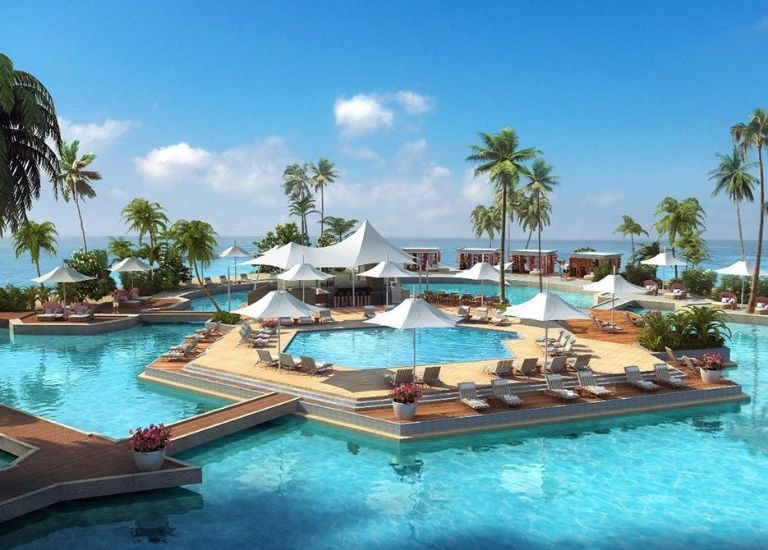In a world where travelers are no longer satisfied with generic vacations and predictable itineraries, U Wang Young has emerged as a visionary leader redefining the tourism industry. With a deep understanding of shifting consumer behavior and a commitment to innovation, he has placed experiential tourism at the heart of his business strategy. For U Wang Young, the future of tourism lies in offering immersive, personalized, and meaningful experiences that go beyond luxury and comfort.
This article will go through why U Wang Young is investing heavily in experience-driven tourism and how his approach is setting a new standard for the industry.
Understanding the Shift: From Products to Experiences
Over the last decade, tourism has undergone a significant transformation. Travelers today—particularly Millennials and Gen Z—are prioritizing experiences over possessions. Instead of simply staying in five-star resorts, they want to engage with local cultures, explore nature, and participate in activities that create lasting memories. The pandemic further accelerated this trend, leading people to seek more purposeful and personalized travel options.

U Wang Young was among the first to recognize this change. He saw an opportunity to go beyond traditional hospitality and craft experiences that resonate emotionally with guests. Rather than focus solely on amenities, his properties offer storytelling, cultural immersion, and local engagement, positioning them as destinations in themselves.
Designing Destinations, Not Just Hotels
One of U Wang Young’s signature strategies is to treat each resort or hotel not just as a place to stay but as a curated journey. His development teams work closely with local artisans, historians, and cultural experts to create environments that reflect the unique heritage of each location.
From hosting authentic cooking classes with local chefs to offering guided eco-tours led by indigenous guides, his properties immerse guests in the surroundings. Every detail—from architecture and interior design to food and activities—is designed to tell a story. This approach not only enhances the guest experience but also supports local communities and economies.
Investing in Experiential Innovation
To stay ahead of industry trends, U Wang Young has established an innovation lab within his hospitality company, dedicated to exploring new ways to enhance guest engagement. This team tests concepts like augmented reality tours, sensory-based wellness experiences, and even AI-driven personalization engines that tailor itineraries based on a guest’s preferences.

He believes that technology should enhance—not replace—the human element of hospitality. For example, guests at his resorts can use digital platforms to preview experiences, book custom excursions, or learn about local traditions, all while maintaining personal connections with staff and community hosts.
Sustainability as an Experience
A key aspect of U Wang Young’s experiential tourism model is environmental sustainability. He believes that meaningful travel must also be responsible travel. Guests today are increasingly eco-conscious, and he is meeting this demand by integrating sustainability into the travel experience.
At his eco-resorts, travelers can participate in conservation programs, such as coral reef restoration, wildlife protection, or sustainable farming workshops. By making sustainability interactive and educational, U Wang Young creates deeper engagement while encouraging travelers to become environmental stewards.
His developments prioritize renewable energy, water conservation, and low-impact construction. These sustainable practices are not hidden behind the scenes—they are visible, participatory elements that reinforce his brand’s values and enhance the authenticity of the guest journey.
Targeting a New Generation of Travelers
U Wang Young’s investment in experiences is also a response to the evolving preferences of younger travelers. Millennials and Gen Z prioritize purpose-driven brands, digital integration, and Instagram-worthy moments. They seek travel that aligns with their values and identity.

Understanding this, U Wang Young tailors his offerings to resonate with these demographics. His properties are designed with social media appeal in mind, featuring breathtaking views, unique cultural aesthetics, and one-of-a-kind experiences. He also leverages storytelling and digital content to connect with travelers before they even book a trip, nurturing a sense of anticipation and emotional connection.
Empowering Local Communities
Another reason U Wang Young is betting on experiential tourism is its potential to uplift local communities. By involving residents in the design and delivery of guest experiences, he creates economic opportunities and fosters cultural pride.
Local artisans are commissioned to create artwork and decor. Farmers supply organic produce to resort kitchens. Musicians, dancers, and storytellers are given platforms to share their traditions. This integration benefits both visitors and hosts, creating a tourism model based on mutual respect and shared enrichment.
His model ensures that tourism doesn’t displace or exploit communities but instead strengthens them. This approach also appeals to conscientious travelers who want their spending to make a positive impact.
Measuring Success Differently
Traditional hospitality metrics—occupancy rates, room service revenue, and average daily rates—still matter, but U Wang Young uses broader indicators of success. He monitors guest satisfaction not only through surveys but by analyzing emotional responses, repeat visits, and social media engagement.
He also evaluates the impact on local communities, environmental sustainability, and long-term brand loyalty. For him, the goal is not just to maximize short-term profits but to create a travel brand that resonates on a deeper level, leading to sustained success over decades.
The Future of U Wang Young’s Vision
As global tourism recovers and evolves, U Wang Young’s strategy appears prescient. Major hospitality brands are beginning to emulate elements of his approach, but he remains a step ahead by constantly innovating and adapting.
He plans to expand his experiential tourism model to new markets, particularly in emerging destinations where cultural richness and natural beauty remain untapped. He is also investing in educational programs to train future hospitality leaders in experience design, sustainability, and ethical business practices.
In the coming years, U Wang Young envisions a global network of experience-centric resorts, each rooted in local authenticity and connected by a shared commitment to purpose-driven travel. He believes that this is not just a trend, but the future of the industry.
Conclusion
U Wang Young’s belief in the power of experiences is not just a marketing strategy—it is a philosophy grounded in human connection, cultural appreciation, and responsible business. As he continues to redefine what it means to travel, his experiential approach is shaping the next generation of tourism.
By betting on experiences, U Wang Young is not only meeting the desires of modern travelers but also building a more sustainable, inclusive, and meaningful future for global tourism. His journey proves that when business aligns with purpose, the result is not only success—but significance.
